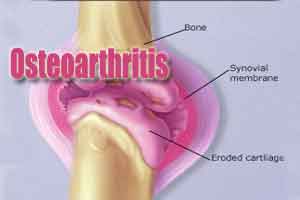- Home
- Editorial
- News
- Practice Guidelines
- Anesthesiology Guidelines
- Cancer Guidelines
- Cardiac Sciences Guidelines
- Critical Care Guidelines
- Dentistry Guidelines
- Dermatology Guidelines
- Diabetes and Endo Guidelines
- Diagnostics Guidelines
- ENT Guidelines
- Featured Practice Guidelines
- Gastroenterology Guidelines
- Geriatrics Guidelines
- Medicine Guidelines
- Nephrology Guidelines
- Neurosciences Guidelines
- Obs and Gynae Guidelines
- Ophthalmology Guidelines
- Orthopaedics Guidelines
- Paediatrics Guidelines
- Psychiatry Guidelines
- Pulmonology Guidelines
- Radiology Guidelines
- Surgery Guidelines
- Urology Guidelines
Diacerein found effective for glycemic control in osteoarthritis patients with type 2 diabetes

Diacerein, an immune modulator anti-inflammatory drug, may improve glycemic control in patients with type 2 diabetes, especially those with osteoarthritis.In a study published in October 2017 issue of the journal Diabetes Care, diacerein reduced mean HbA1c levels, with peak of effect at 24th week of treatment and it was also well tolerated.
The researchers tried to assess,the efficacy and safety of diacerein in improving glycemic control of patients with type 2 diabetes in a randomized, double-blind, and placebo-controlled trial .
In the research , Eighty-four patients with HbA1c between 7.5 and 9.5% (58–80 mmol/mol) were randomized to 48-week treatment with placebo (n = 41) or diacerein 100 mg/day (n = 43). The primary outcome was the difference in mean HbA1c changes during treatment. Secondary outcomes were other efficacy and safety measurements. A general linear regression with repeated measures, adjusted for age, sex, diabetes duration, and each baseline value, was used to estimate differences in mean changes. Both intention-to-treat (ITT) analysis and per-protocol analysis (excluding 10 patients who interrupted treatment) were performed.
It was found that Diacerein reduced HbA1c compared with placebo by 0.35% (3.8 mmol/mol; P = 0.038) in the ITT analysis and by 0.41% (4.5 mmol/mol; P = 0.023) in the per-protocol analysis. The peak of effect occurred at the 24th week of treatment (−0.61% [6.7 mmol/mol; P = 0.014] and −0.78% [8.5 mmol/mol; P = 0.005], respectively), but it attenuated toward nonsignificant differences at the 48th week. No significant effect of diacerein was observed in other efficacy and safety measures. Diarrhea occurred in 65% of patients receiving diacerein and caused treatment interruption in 16%. Seven patients in the diacerein group reduced insulin dosage, whereas 10 in the placebo group increased it; however, mild hypoglycemic events were equally observed.
Therefore it was concluded that Diacerein reduced mean HbA1c levels, with peak of effect at the 24th week of treatment. The drug was well tolerated and may be indicated as adjunct treatment in patients with type 2 diabetes, particularly in those with osteoarthritis.
For more details click on the link :
http://care.diabetesjournals.org/lookup/suppl/doi:10.2337/dc17-0374/-/DC1.
diabetesDiaceringlycemic controlHbA1cjournal Diabetes CareosteoarthritisOsteoarthritis PatientsType-2 diabetes
Next Story
NO DATA FOUND

Disclaimer: This site is primarily intended for healthcare professionals. Any content/information on this website does not replace the advice of medical and/or health professionals and should not be construed as medical/diagnostic advice/endorsement or prescription. Use of this site is subject to our terms of use, privacy policy, advertisement policy. © 2020 Minerva Medical Treatment Pvt Ltd